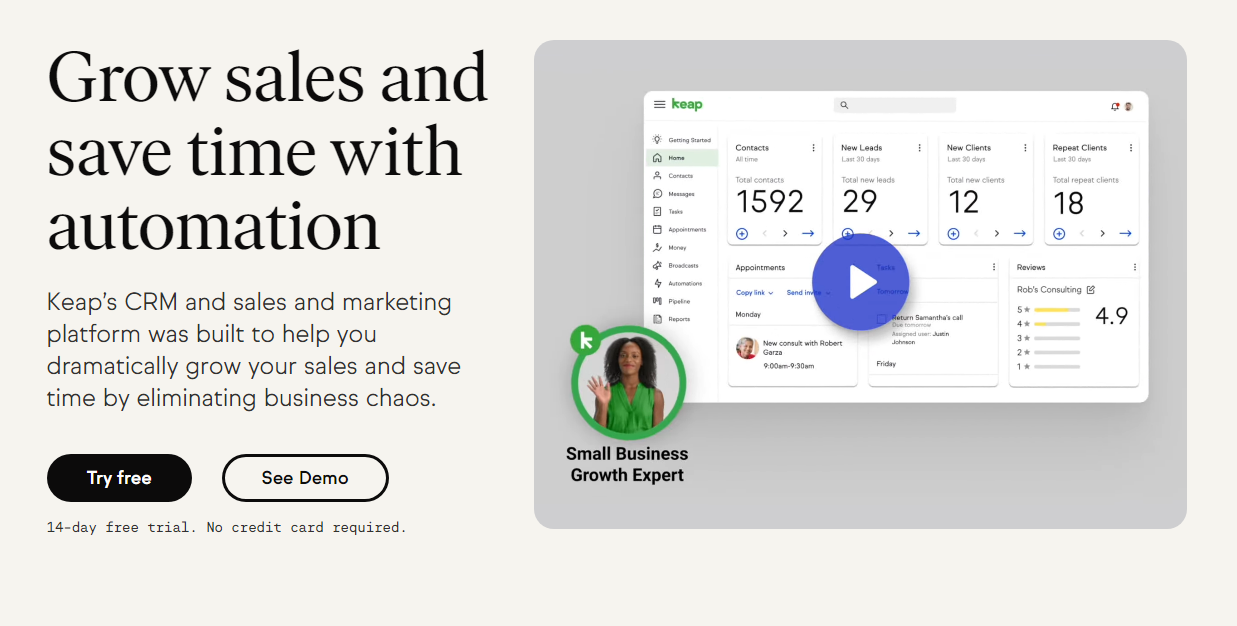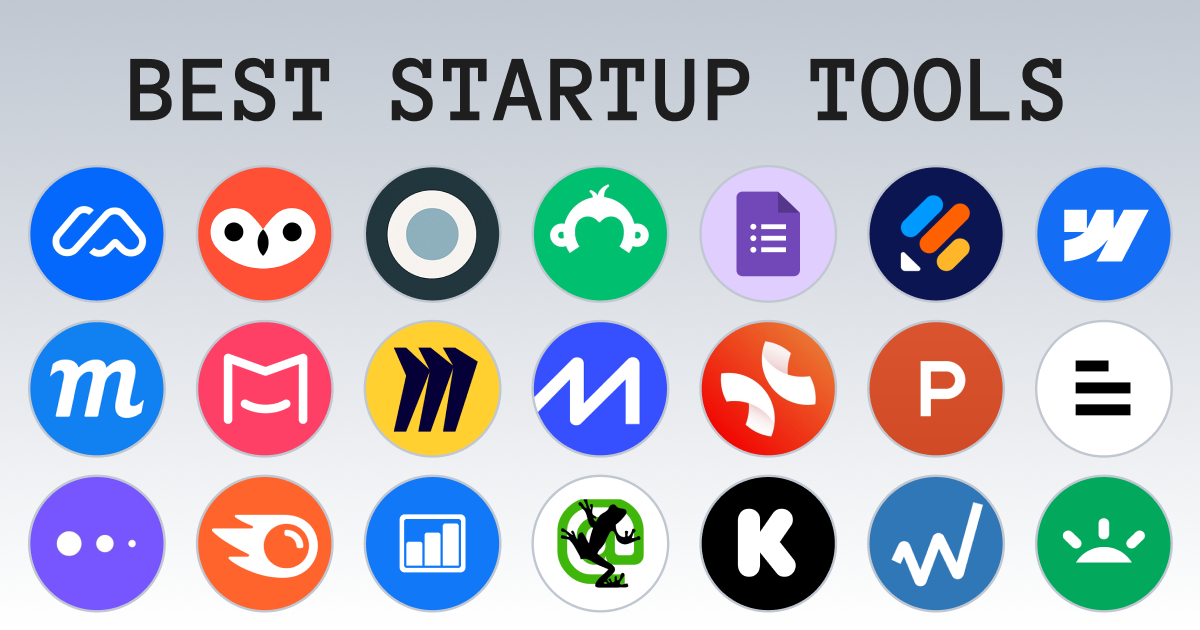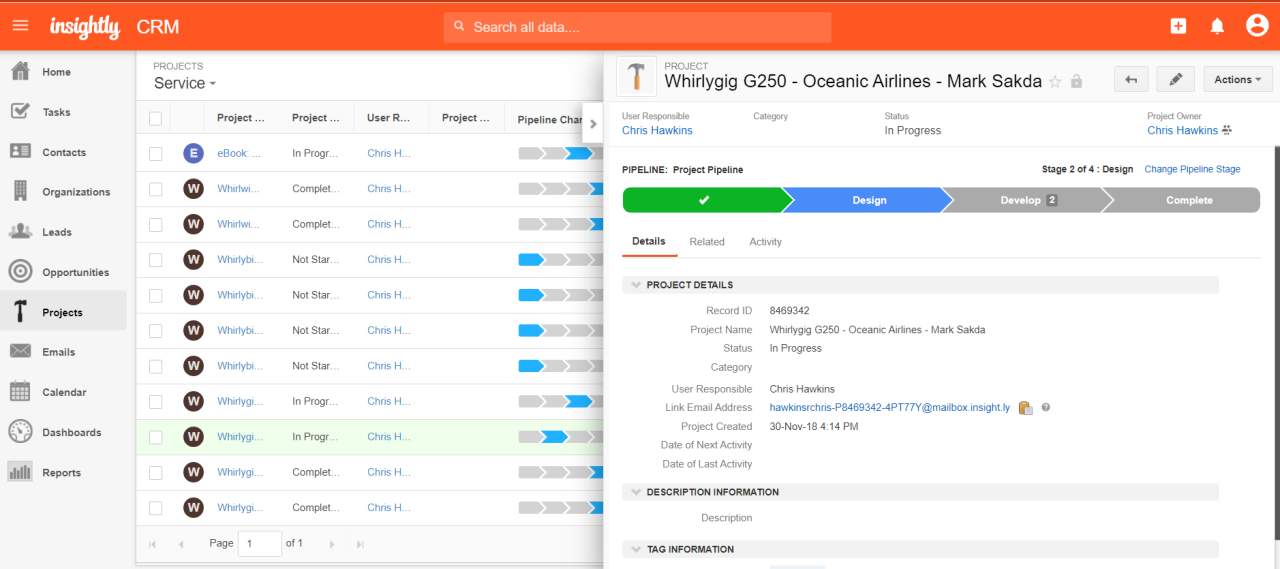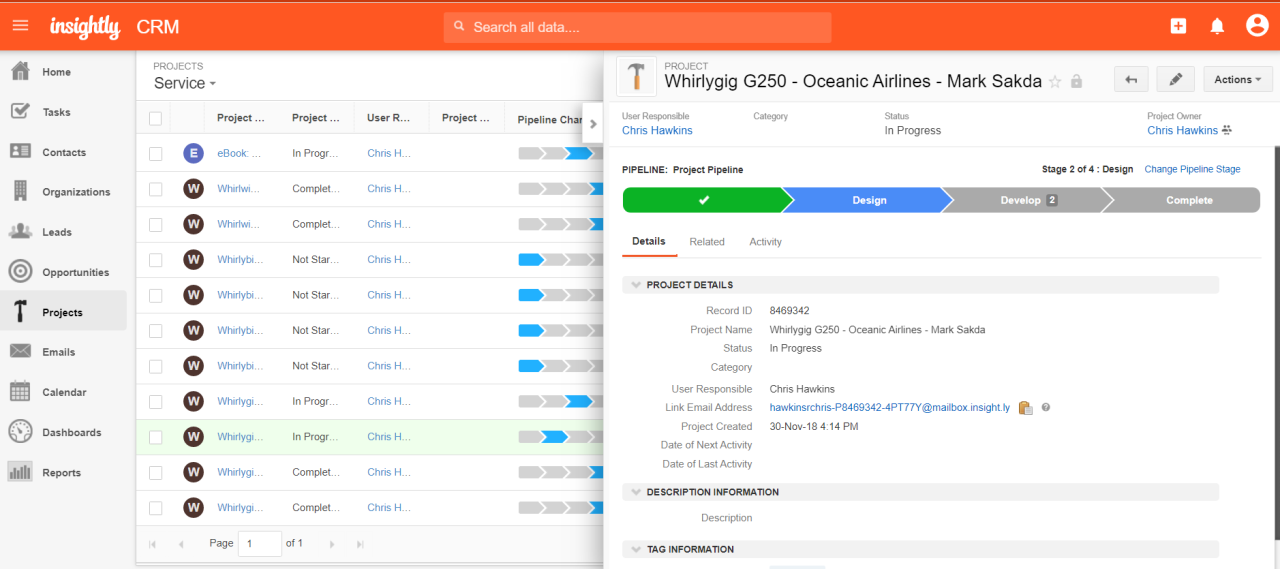Choosing the right Customer Relationship Management (CRM) tool is crucial for any business aiming to optimize its customer interactions and boost sales. This guide explores the world of CRM tools, from understanding their fundamental functions to selecting the perfect fit for your specific needs.
We’ll delve into various types of CRM software, analyzing their key features, functionalities, and comparing leading platforms like Salesforce, HubSpot, and Zoho CRM. This in-depth exploration will empower you to make informed decisions, ensuring your CRM investment yields maximum return.
Introduction to CRM Tools

Customer Relationship Management (CRM) tools are software applications designed to manage and improve interactions with customers. They centralize customer data, track interactions, and automate processes, ultimately enhancing customer relationships and driving business growth. A well-implemented CRM system can significantly streamline operations and improve efficiency across various departments.CRM tools provide a comprehensive view of customer interactions, allowing businesses to understand their needs and preferences better.
This understanding fosters stronger relationships and facilitates targeted marketing campaigns, personalized customer service, and ultimately, increased profitability.
Types of CRM Tools
Different types of CRM tools cater to specific business needs. These tools are often categorized based on the primary function they support. Common types include Sales CRM, Marketing CRM, and Service CRM, each tailored to address different aspects of the customer journey.
Key Functionalities of CRM Tools
Most CRM tools share fundamental functionalities that streamline business processes. These include lead management, contact management, opportunity tracking, sales forecasting, and customer service support. Automated workflows, reporting and analytics, and integration with other business applications are also frequently included. These common functionalities contribute to a unified view of customer interactions, enabling informed decision-making and enhanced customer experience.
CRM Tool Types and Their Core Functions
| Type | Core Functions | Typical Users | Example |
|---|---|---|---|
| Sales CRM | Lead management, sales forecasting, opportunity tracking, sales pipeline management, and automated follow-up. | Sales teams, sales managers, and business development representatives. | Salesforce, HubSpot Sales, Zoho CRM. |
| Marketing CRM | Customer segmentation, campaign management, lead nurturing, email marketing automation, and marketing analytics. | Marketing teams, marketing managers, and content marketers. | HubSpot Marketing, Pardot, Marketo. |
| Service CRM | Ticket management, customer support, knowledge base, issue resolution, and customer feedback analysis. | Customer service representatives, customer support managers, and technical support teams. | Zendesk, Salesforce Service Cloud, Freshdesk. |
Evaluating CRM Tool Features
Choosing the right CRM tool is crucial for streamlining business processes and maximizing efficiency. A robust CRM system integrates various aspects of customer interaction, from initial contact to ongoing support, making informed decisions easier. Careful evaluation of features is paramount to ensure the selected tool aligns with specific business needs and goals.Evaluating a CRM tool goes beyond simply browsing the features.
It involves a thorough understanding of how these features will impact daily workflows and ultimately contribute to business growth. A good CRM system should seamlessly integrate with existing applications, enabling smooth data flow and minimizing manual processes. The tool should also possess the scalability to adapt to future growth and customization to cater to unique business requirements.
Crucial Features for Top-Tier CRM Tools
Identifying essential features is vital for selecting a CRM that truly benefits the organization. A comprehensive CRM should offer robust lead management capabilities, ensuring potential customers are effectively tracked and nurtured. Effective customer support features are equally important, allowing for prompt responses and resolutions to customer issues. Furthermore, robust marketing automation capabilities are essential for targeted campaigns and lead generation.
Impact on User Experience and Efficiency
User-friendly interfaces and intuitive navigation are key components of a high-quality CRM. Efficient lead management systems significantly reduce manual data entry and improve sales team productivity. Streamlined customer support functionalities ensure rapid resolution of issues, enhancing customer satisfaction. Marketing automation features, in turn, optimize marketing efforts, leading to better campaign performance and improved ROI.
Significance of Integration Capabilities
Integrating a CRM with other business applications is paramount for seamless data flow and enhanced efficiency. Integration with marketing automation platforms allows for synchronized campaigns and lead nurturing, optimizing marketing efforts. Integration with accounting software ensures accurate tracking of sales and revenue, facilitating better financial management. Integrating with project management tools can streamline customer project management.
Importance of Scalability and Customization
A CRM system must be scalable to accommodate future business growth and adapt to changing needs. A scalable CRM can adjust to an increasing volume of data and users without compromising performance. Customization options are also crucial for aligning the CRM with the unique processes and workflows of a specific business. This tailoring ensures the CRM system efficiently supports the organization’s specific needs.
Comparative Analysis of CRM Tools
A comparative analysis provides valuable insights into the strengths and weaknesses of different CRM tools. The following table showcases a comparison of Salesforce, HubSpot, and Zoho CRM based on key features:
| Feature | Salesforce | HubSpot | Zoho CRM |
|---|---|---|---|
| Lead Management | Excellent | Good | Good |
| Customer Support | Excellent | Good | Adequate |
| Marketing Automation | Excellent | Excellent | Adequate |
Note that this table is a simplified representation and further research is needed to determine the suitability of a CRM for specific business needs. The evaluation should also consider factors such as pricing, support options, and security measures.
Top CRM Tools Comparison

Choosing the right CRM tool is crucial for streamlining sales processes and enhancing customer relationships. Different tools cater to varying business needs and budgets, making a comparative analysis essential for informed decision-making. Understanding the strengths and weaknesses of each option, alongside their pricing models and user experience, is vital for successful implementation.
CRM Tool Strengths and Weaknesses
Various CRM tools excel in different areas. Salesforce, a robust and comprehensive platform, is a market leader but often comes with a steeper learning curve and higher price tag. HubSpot, known for its user-friendly interface and strong marketing automation features, is a good option for smaller businesses. Zoho CRM, another powerful option, is often praised for its affordability and comprehensive functionality.
Each tool possesses specific strengths and weaknesses, impacting the overall suitability for different businesses.
Pricing Models and Associated Costs
The pricing models of CRM tools vary significantly, impacting the overall cost of implementation. The table below provides a concise overview of the typical pricing structures for popular CRM tools, highlighting their free tiers and various paid plans. Different pricing structures can range from per-user fees to more complex custom plans based on usage and features.
| CRM Tool | Free Tier | Basic Plan | Enterprise Plan |
|---|---|---|---|
| Salesforce | Limited functionality, suitable for smaller trials | $25/user/month, often with additional costs for features like advanced reporting | Custom pricing, tailored to the specific needs of large organizations |
| HubSpot | Comprehensive free tier, including essential features like contact management and email marketing | $45/user/month, offering more storage and advanced automation capabilities | Custom pricing, often based on user count and advanced features |
| Zoho CRM | Free tier with basic functionality, suitable for starting businesses | $15/user/month, with features suitable for medium-sized businesses | Custom pricing, often based on the number of users and desired features |
User Experience and Ease of Implementation
The user experience and ease of implementation are key factors when selecting a CRM. Intuitive interfaces and readily available support materials contribute to a positive user experience. Salesforce, despite its extensive functionality, can have a more complex initial setup. HubSpot, designed for ease of use, provides robust documentation and support, making it a relatively easy choice for new users.
Zoho CRM is generally considered user-friendly, making it suitable for organizations with limited IT resources. Factors like training requirements and the availability of comprehensive documentation influence the overall implementation process.
CRM Tool Selection Process
Choosing the right Customer Relationship Management (CRM) tool is crucial for a business’s success. A poorly selected CRM can lead to wasted resources, decreased efficiency, and ultimately, hinder growth. This process requires careful consideration of various factors, from budget constraints to scalability needs, and a structured approach is vital for a smooth transition.
Steps in Selecting the Right CRM Tool
A systematic approach to CRM selection ensures a well-informed decision. This involves evaluating potential tools against your business’s specific needs, considering critical factors, and conducting thorough vendor due diligence. This process is essential to avoid costly mistakes and ensure the chosen CRM aligns perfectly with your business goals.
Evaluation Criteria Checklist
Careful consideration of potential CRM tools requires a comprehensive evaluation. This checklist provides a structured framework for assessing various aspects of potential solutions. It helps you ensure that the chosen tool meets your business’s requirements and facilitates a smooth implementation.
- Budget Constraints: Clearly defined budget limitations are essential for realistic CRM selection. Consider not only the initial purchase cost but also ongoing maintenance fees, user training, and potential customization costs. For example, a small business might prioritize a free or low-cost option, while a large enterprise might invest in a comprehensive suite with advanced features.
- Scalability Needs: Assess the current and future growth potential of your business. Ensure the CRM can adapt to increasing data volumes, user counts, and evolving business processes. A CRM that can’t scale with your business will become a bottleneck as your organization grows.
- Integration Requirements: Determine the necessary integrations with existing software and systems. Evaluate the CRM’s API capabilities and compatibility with your current applications, such as accounting software, marketing automation tools, and e-commerce platforms. A lack of integration can create data silos and hinder overall efficiency.
- User Training Resources: Assess the availability and quality of training materials provided by the vendor. Adequate training is critical for maximizing user adoption and efficiency. Consider the level of support offered and the expertise of the training team.
- Customer Support Options: Evaluate the vendor’s customer support channels, including phone, email, and online resources. Consider the response time, the knowledge level of support staff, and the availability of documentation. Reliable customer support is crucial for troubleshooting issues and ensuring smooth operation.
Essential Questions for Potential Vendors
Thorough vendor due diligence is crucial to understanding a CRM tool’s capabilities and its fit for your business. Asking specific questions will help you evaluate a potential CRM’s suitability.
- What specific features does the CRM offer to improve customer service and communication? This question focuses on the core functionality of the CRM and how it addresses customer interaction. Examples include features like automated email responses, personalized communication templates, and customer interaction tracking.
- What are the CRM’s security protocols and measures to protect customer data? Data security is paramount in any CRM implementation. Understanding the vendor’s security practices is crucial to ensure compliance with regulations and maintain customer trust.
- What is the process for migrating existing data to the new CRM? Data migration is a critical step in implementing a new CRM. Inquire about the vendor’s procedures to ensure a smooth and efficient data transfer.
- How does the vendor’s support team assist users with troubleshooting and resolving issues? This question assesses the vendor’s commitment to customer support and their ability to address user challenges.
Step-by-Step Guide for Evaluating CRM Tools
A structured approach to evaluating CRM tools will ensure a thorough assessment and informed decision.
- Define your business needs and goals: Clearly identify the specific pain points your business faces and the desired outcomes of implementing a CRM. Consider current processes, workflows, and areas for improvement.
- Research and shortlist potential CRM tools: Identify potential CRM tools that align with your identified needs. Consult industry reviews, compare features, and prioritize tools that meet your specific requirements.
- Evaluate shortlisted tools based on the checklist: Assess each shortlisted tool against your evaluation criteria, paying close attention to factors like budget, scalability, and integration.
- Request demos and trials: Request demos or trials to experience the tools firsthand. This allows you to interact with the software, understand its functionality, and assess its user-friendliness.
- Seek references from other businesses: Contact businesses that have successfully implemented the tools and gather feedback on their experiences.
- Make an informed decision: Weigh the pros and cons of each tool and choose the one that best aligns with your business’s specific needs, budget, and future goals.
Illustrative Use Cases
CRM tools are proving invaluable for businesses across various industries, enabling them to manage customer interactions more effectively and streamline their operations. By providing a centralized platform for storing and accessing customer data, CRM systems empower businesses to build stronger customer relationships, personalize interactions, and ultimately boost profitability.CRM tools aren’t just a theoretical concept; they’re actively transforming business processes, from sales and marketing to customer service and beyond.
Their adaptability allows them to be tailored to diverse business needs and sizes, demonstrating their practical value in a wide range of applications.
Retail Industry Use Cases
CRM tools help retail businesses manage customer data, track purchase history, and personalize marketing campaigns. By understanding customer preferences, retailers can offer targeted promotions and improve customer satisfaction. For instance, a clothing store can use a CRM to segment customers based on past purchases and recommend relevant new items. This personalized approach enhances the customer experience and drives sales.
Real Estate Industry Use Cases
In real estate, CRM systems facilitate managing leads, tracking property listings, and nurturing potential clients. Agents can use CRM tools to maintain detailed records of client interactions, track property showings, and personalize communication strategies. For example, a real estate agent can use a CRM to send personalized email updates about properties matching a client’s criteria, keeping them informed and engaged throughout the process.
This proactive approach strengthens client relationships and increases the likelihood of successful transactions.
Financial Services Industry Use Cases
CRM tools are essential for financial institutions to manage client relationships, track financial transactions, and provide personalized financial advice. Banks and investment firms can use CRM to analyze client portfolios and provide tailored financial recommendations. A financial advisor, for example, can use a CRM to track client investments, identify potential risks, and proactively offer solutions. This approach fosters trust and builds long-term client relationships.
Lead Management with CRM
CRM tools excel at managing leads by tracking interactions, categorizing prospects, and nurturing them through the sales funnel. They automate tasks such as lead assignment, follow-up reminders, and communication tracking. For instance, a sales team can use a CRM to categorize leads based on their level of interest and prioritize follow-up efforts. This systematic approach ensures that no potential customer is overlooked and helps convert leads into paying customers.
Sales Forecasting with CRM
CRM systems provide valuable insights into sales trends and performance, enabling businesses to create accurate sales forecasts. By tracking sales data, identifying patterns, and analyzing historical performance, businesses can project future sales with greater precision. For example, a company can use a CRM to analyze sales figures from the past quarter and predict sales for the next quarter based on similar market conditions and trends.
This proactive approach helps businesses make informed decisions and allocate resources effectively.
CRM Tool Usage Across Company Sizes
CRM tools are adaptable and can be effectively used by businesses of all sizes. Small businesses can leverage CRM to streamline their operations and manage customer relationships, while larger enterprises can use CRM to manage complex sales processes and track interactions with thousands of customers. A small local bakery can use a CRM to manage customer orders and track feedback, while a multinational corporation can use a CRM to manage global sales teams and track performance across various regions.
Impact of CRM Tools on Business Processes
CRM tools enhance business processes by automating tasks, centralizing data, and providing actionable insights. They reduce manual effort, improve efficiency, and allow businesses to focus on strategic initiatives. For instance, automating follow-up emails can free up sales representatives’ time to focus on building relationships with clients, while centralized data allows for better decision-making. The improved efficiency and productivity, combined with data-driven insights, ultimately enhance business profitability.
Outcome Summary

In conclusion, selecting the best CRM tool involves careful consideration of your business needs, budget, and scalability requirements. By understanding the different types of CRM tools, evaluating key features, and comparing leading platforms, you can confidently choose a solution that aligns with your objectives. This comprehensive guide provides a structured approach, empowering you to make an informed decision.
Query Resolution
What are the common pitfalls to avoid when choosing a CRM?
Overlooking your specific business needs, neglecting scalability considerations, and failing to assess integration capabilities with existing systems are common pitfalls. It’s essential to tailor your selection to your unique requirements to prevent future complications.
How can I determine if a CRM tool is scalable for my business growth?
Look for CRM tools with customizable plans and features that can accommodate your company’s expansion. Ensure that the chosen CRM can adapt to anticipated growth, potentially adding users and functionalities without significant disruption.
What is the role of user training in a CRM implementation?
Adequate user training is crucial for successful CRM adoption. Companies should prioritize comprehensive training programs that equip employees with the knowledge and skills to effectively utilize the new system.
What are the pricing models available for CRM tools?
CRM pricing varies significantly, often based on user numbers, features, and contract duration. The models can include tiered pricing with varying levels of features and functionalities or custom pricing for enterprises with unique requirements.






